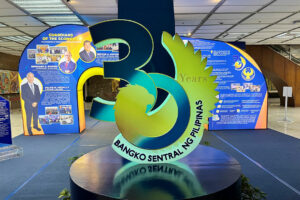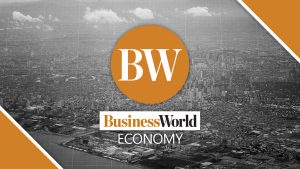BSP sees increase in Islamic banking interest

FIVE BANKS and government institutions from abroad have expressed interest in venturing into Islamic banking in the Philippines, an official from the Bangko Sentral ng Pilipinas (BSP) said.
BSP Deputy Governor Francisco G. Dakila, Jr. said during an economic briefing in Davao City that the promotion of Islamic finance in the country has sparked a “notable surge” in market interest from local and foreign investors.
“We’ve had numerous briefings and informative sessions and this has resulted in engagements with potential new players,” Mr. Dakila said.
“Notable of which, aside from conventional banks, we have seen interest from five foreign banks, foreign government institutions, and foreign embassies who volunteered support in tapping new Islamic banking players,” he added.
The central bank has been encouraging lenders and new players to venture into Islamic banking in the country.
Changes in rules covering Islamic banking licensing, Shari’ah governance, and taxation have been instrumental in attracting more players to enter the sector. The government has also issued policies to implement the Islamic Banking Law.
With these initiatives, the BSP is looking to attract investors from Muslim regions, including the Cooperation Council for the Arab States of the Gulf, as well as investors from non-Muslim countries who are looking for diversified investments, Mr. Dakila said.
The BSP is also looking forward to the issuance of the first sovereign sukuk, which will generate more prospects and engagements with the global Islamic financial market, he said.
Sukuk refers to certificates that represent a proportional undivided ownership right in tangible assets, or pool of tangible assets and other types of assets. These assets could be in specific project or specific investment activity that is Shari’ah-compliant.
Residents and nonresidents, regardless of their religious affiliation, are allowed to invest in sukuk.
Meanwhile, the Shari’ah law refers to a system of values, norms, and rules regulating all aspects of life based on the principles of justice, fair dealings, and harmony through equitable distribution of wealth.
“The market interest on Islamic banking is primarily attributed to its business models that emphasizes risk sharing, ethical, and sustainable finance,” Mr. Dakila said.
He noted that the regulatory approach in ensuring a level playing field across all players is also a key factor behind the market interest.
“The promotion of Islamic banking and finance in the country will expand our financial inclusion agenda particularly in the BARMM (Bangsamoro Autonomous Region in Muslim Mindanao) which is the most unbanked region in the country,” he said.
He also said that the Monetary Board has approved the first Islamic banking unit license issued to a traditional bank.
“This has brought the Islamic banking players in the country to two. We anticipate more applicants as we continue our initiatives to promote Islamic banking and finance,” he said.
The Al-Amanah Islamic Investment Bank of the Philippines is the first Islamic bank in the Philippines and was established in 1973. — Keisha B. Ta-asan




